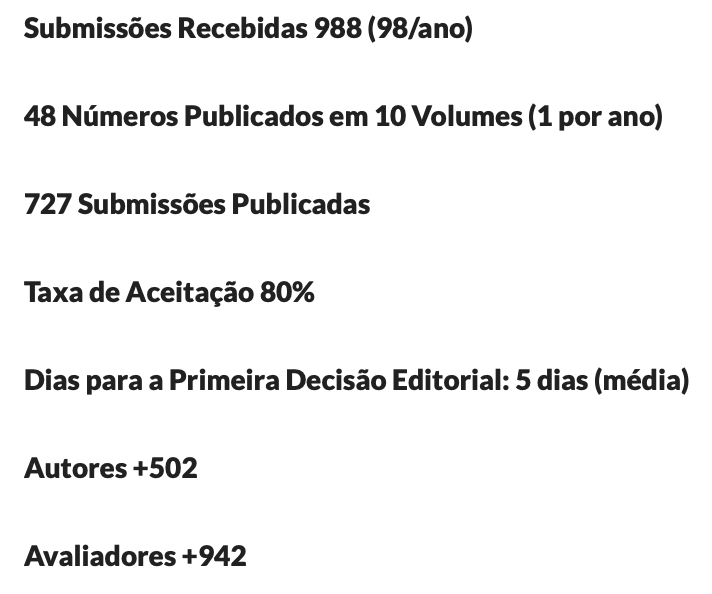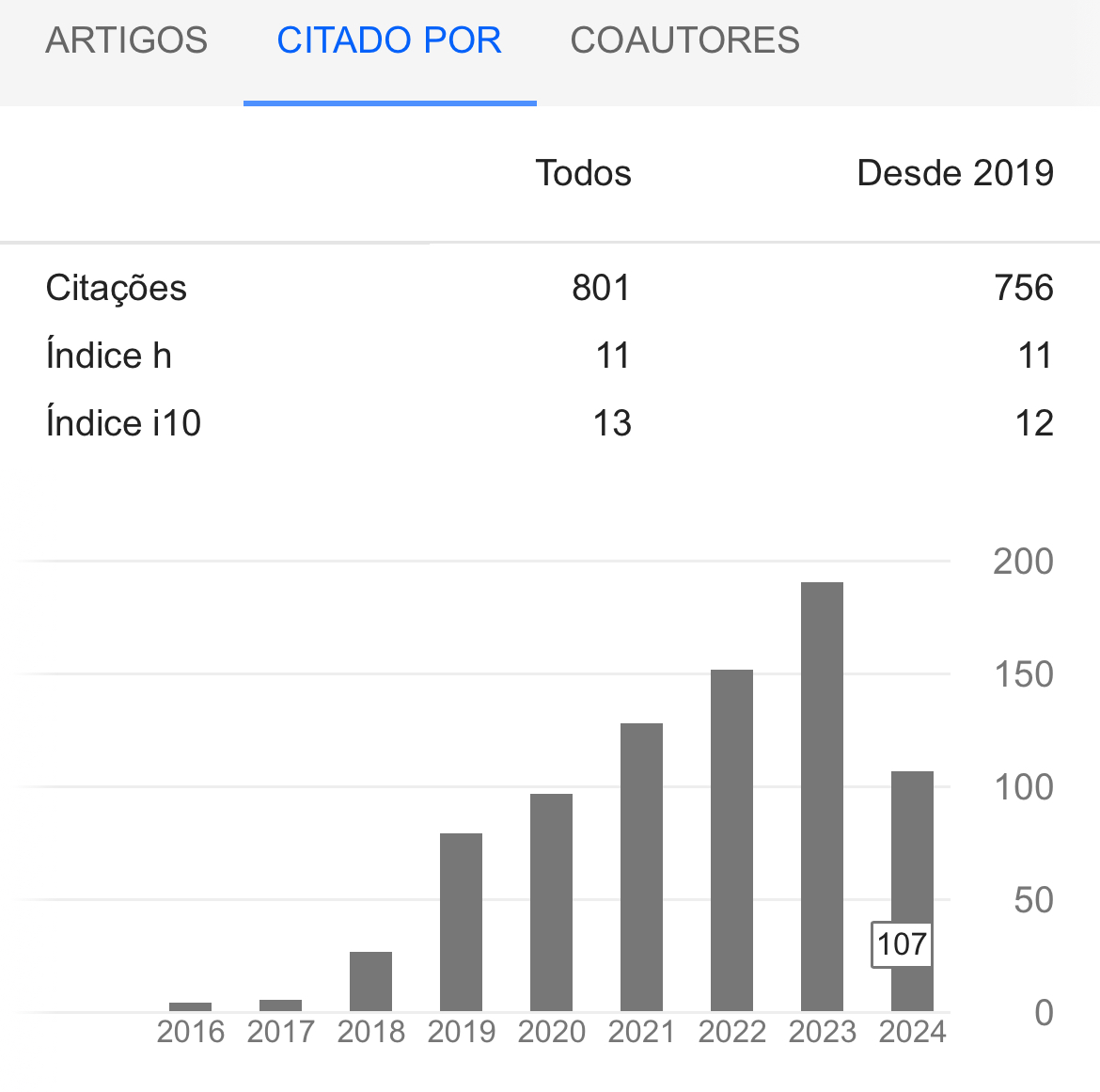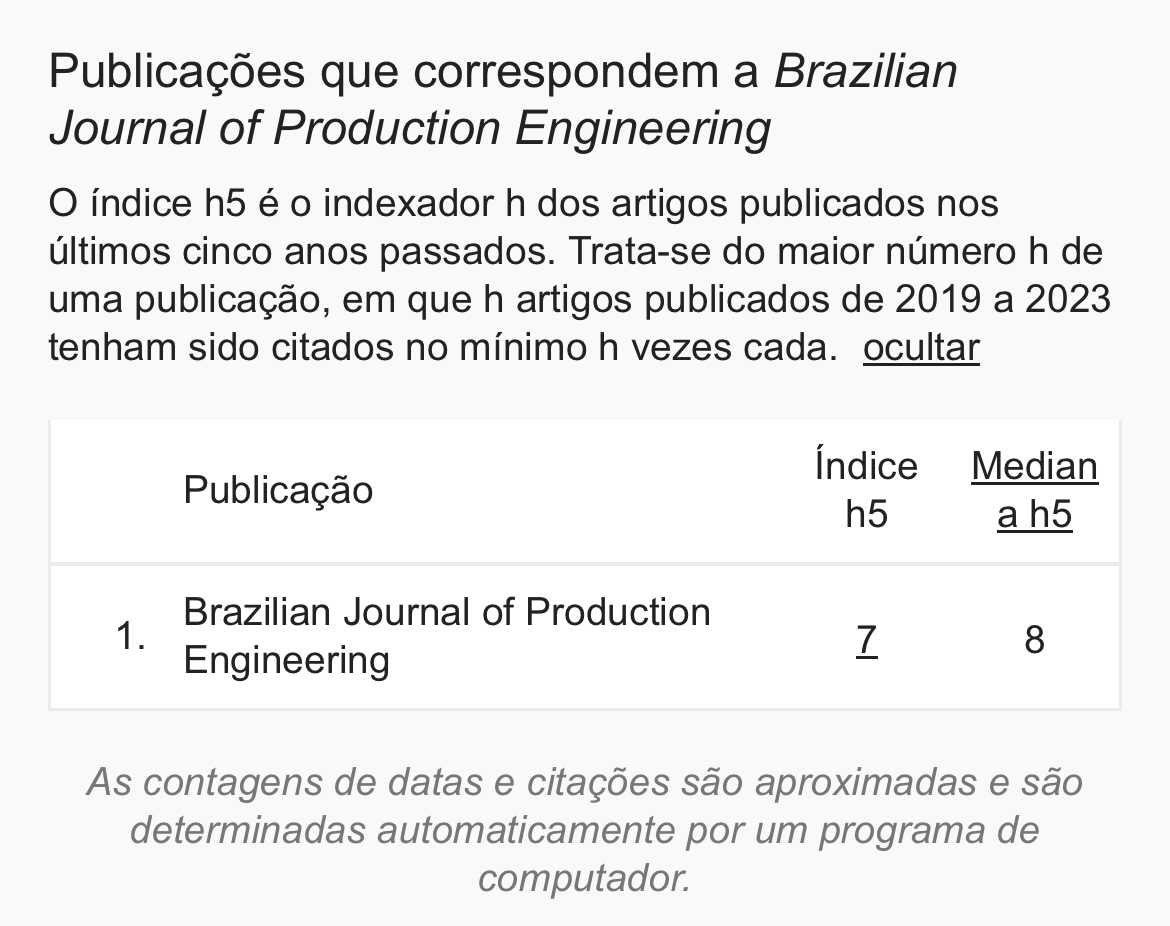Proposal for a human capital management framework for remote work
DOI:
https://doi.org/10.47456/bjpe.v7i3.36127Keywords:
People management, Management model, Home officeAbstract
People management is an essential field for companies since individual acting, based on training and quality of working conditions, reflects the organizational performance. Some specific working arrangements, such as remote work or home office mediated by information and communication technologies, require special attention from the perspective of human resources in order to function properly. In this context, the main objective of this study was to identify the overview conditions of remote work, based on the literature and in a single case study, to perform a comparative analysis in a company from the commercial automation sector and understand how people management acts in a home office setting. The methodology used was a qualitative approach and comparative method. This research presented some main results, such as focus and self-discipline are essential qualities to manage remote workers; the advantages and disadvantages perceived by home office workers vary considerably and depend on individual factors like personality and experience; only through active communication and constructive feedback it is possible to avoid the social and professional isolation felt by some remote workers. Nonetheless, the main contribution of this study is the proposition of a framework to guide the establishment of remote work, avoiding part of the problems associated with this work regime.
Downloads
References
Anderson, J., Bricout, J. C., & West, M. D. (2001). Telecommuting: Meeting the needs of businesses and employees with disabilities. Journal of Vocational Rehabilitation, 16, 97-104.
Bailey, K. (2008). Methods of social research (4a ed.). US: Free Press. 592 p.
Barros, A. M., & Silva, J. R. G. D. (2010). Percepções dos indivíduos sobre as consequências do teletrabalho na configuração home-office: estudo de caso na Shell BR. Cadernos EBAPE. BR 8, 71-91.
Basile, K. A., & Beauregard, T. A. (2016). Strategies for successful telework: How effective employees manage work/home boundaries. Strategic HR review, 15(3), 106-111.
Baym, N. K., Zhang, Y. B., Kunkel, A., Ledbetter, A., & Lin, M. C. (2007). Relational quality and media use in interpersonal relationships. New media & society, 9, 735-752.
Binci, D., & Scafarto, F. (2019). Leadership for Digital Working: Towards a Contextual Ambidextrous Approach. In M. Franco (Ed.), Digital Leadership-A New Leadership Style for the 21st Century. Italy: IntechOpen. https://doi.org/10.5772/intechopen.90370
Cacioppo, J. T., Hawkley, L. C., Norman, G. J., & Berntson, G. G. (2011). Social isolation. Annals of the New York Academy of Sciences, 1231, 17.
Chen, K., Wang, M., Huang, C., Kinney, P. L., & Anastas, P. T. (2020). Air pollution reduction and mortality benefit during the COVID-19 outbreak in China. The Lancet Planetary Health, 4(6), 210-212.
Comitê Gestor de Internet no Brasil. (2020). Pesquisa sobre o uso das tecnologias de informação e comunicação nos domicílios brasileiros: TIC Domicílios 2019. https://data.cetic.br/cetic/.
Constantinou, C. S., Georgiou, M., & Perdikogianni, M. (2017). A comparative method for themes saturation (CoMeTS) in qualitative interviews. Qualitative research, 17, 571-588.
Costa, I. D. S. A. D. (2007). Teletrabalho: subjugação e construção de subjetividades. Revista de Administração Pública, 41, 105-124.
Costa, I. D. S. A. D. (2013). Controle em novas formas de trabalho: teletrabalhadores e o discurso do empreendedorismo de si. Cadernos EBAPE. BR, 11, 462-474.
Couto, P. (2020). Scrum e Personal Software Process: um framework de gestão de projeto para desenvolvedores standalone. Repositórios PUC Goiás. Recuperado de https://repositorio.pucgoias.edu.br/jspui/handle/123456789/1039
Dockery, A. M., & Bawa, S. (2018). When Two Worlds Collude: Working from Home and Family Functioning in Australia. International Labour Review, 157, 609– 630.
Dutheil, F., Baker, J. S., & Navel, V. (2020). COVID-19 as a factor influencing air pollution?. Environmental Pollution, 263, 114466.
Eom, S. J., Choi, N., & Sung, W. (2016). The use of smart work in government: Empirical analysis of Korean experiences. Government Information Quarterly, 33, 562-571.
Esteban, C., Fiori, C. A., Ramadan, P. A., Sá, E. C., & Gimenez, M. J. (2018). 1177 Home-office: new challenges for occupational health and safety. Occupational Medicine, 75(2), 379.
Eurostat. (2018). Employed persons working from home as a percentage of the total employment, by sex, age and professional status (%). Eurostat data sheets. Recuperado de https://ec.europa.eu/eurostat/web/products-eurostat-news/-/DDN-20180620-1
Figueiredo, J. A. L. (2021). Os Desafios de uma Liderança Digital. Revista de Administração Contemporânea, 25, e210043-e210043.
Filardi, F., Castro, R. M. P., & Zanini, M. T. F. (2020). Vantagens e desvantagens do teletrabalho na administração pública: análise das experiências do Serpro e da Receita Federal. Cadernos EBAPE, 18, 28-46.
Fincato, D. P., & Andrade, A. S. (2018). Home office: direitos fundamentais, meio ambiente laboral e reforma trabalhista. Revista de Direito Econômico e Socioambiental, 9, 281-300.
Fleury, M. T. L., & Werlang, S. R. C. (2017). Pesquisa aplicada: conceitos e abordagens. Anuário de Pesquisa 2016-2017, São Paulo, 5, p. 10-15.
Freitas, S. R. D. (2008). Teletrabalho na administração pública federal: uma análise do potencial de implantação na diretoria de marcas do INPI (Dissertação de mestrado). Fundação Getúlio Vargas, FGV, São Paulo, SP, Brasil. Recuperado de https://hdl.handle.net/10438/3522
Freitas, W. R., & Jabbour, C. J. (2011). Utilizando estudo de caso (s) como estratégia de pesquisa qualitativa: boas práticas e sugestões. Revista Estudo & Debate, 18(2), 7-22.
Freitas, E. D., Ibarra-Espinosa, S. A., Gavidia-Calderón, M. E., Rehbein, A., Abou Rafee, S. A., Martins, J. A., Martins, L. D., Santos, U. P., Ning, M. F., Andrade, M. F., & Trindade, R. I. (2020). Mobility Restrictions and Air Quality under COVID-19 Pandemic in São Paulo, Brazil. Preprints. https://doi.org/10.20944/preprints202004.0515.v1
Ganong, L. H. (1987). Integrative reviews of nursing research. Research in nursing & health, 10, 1-11.
Garcia, J. G. (2017). Orientação sexual e discriminação: um experimento no mercado de trabalho paulistano (Doctoral dissertation). Repositório digital FGV. Recuperado de http://hdl.handle.net/10438/18884
Godoy, A. S. (1995). Pesquisa qualitativa: tipos fundamentais. Revista de Administração de empresas, 35, 20-29.
Golden, T. D., & Veiga, J. F. (2005). The impact of extent of telecommuting on job satisfaction: Resolving inconsistent findings. Journal of management, 31, 301-318.
Gomes, A. A. (2008). Estudo de caso-Planejamento e métodos. Nuances: estudos sobre Educação, 15(16), 215-221.
Gunther, H., & Júnior, J. L. (2012). Perguntas abertas versus perguntas fechadas: uma comparação empírica. Psicologia: Teoria e Pesquisa, 6, 203-213.
Kearney, E., Shemla, M., Knippenberg, D., & Scholz, F. A. (2019). A paradox perspective on the interactive effects of visionary and empowering leadership. Organizational Behavior and Human Decision Processes, 155, 20-30.
Klerk, S. (2010). The importance of networking as a management skill. South African journal of business management, 41, 37-49.
Lawson, B., Petersen, K. J., Cousins, P. D., & Handfield, R. B. (2009). Knowledge sharing in interorganizational product development teams: The effect of formal and informal socialization mechanisms. Journal of Product Innovation Management, 26, 156-172.
Lazarte, E.S. (2017). Trabalho remoto: percepção dos membros de uma equipe virtual sobre fatores que exercem influência em seu desempenho (Trabalho de conclusão de curso Bacharelado em Administração). Universidade de Brasília, Brasília, Brasil. Recuperado de https://bdm.unb.br/handle/10483/17575
Lima, T. C. S. D., & Mioto, R. C. T. (2007). Procedimentos metodológicos na construção do conhecimento científico: a pesquisa bibliográfica. Revista Katálysis, 10, 37-45.
Lima, I. F. M., & Vaz, D. V. (2020). O setor público é mais igualitário para o negro que o setor privado no Brasil?. Revista Econômica do Nordeste, 51, 89-107.
Lister, K., & Harnish, T. (2019). Telework and its effects in the United States. In J. C. Messenger (Ed.), Telework in the 21st Century (pp. 128-170). Edward Elgar Publishing.
Maia, F. L., Müller, R., & Bernardo, K. A. S. (2020). O trabalho remoto no secretariado: panorama da realidade brasileira a partir do cenário do COVID-19. Revista Expectativa, 19, 118-137.
Mann, S., Varey, R., & Button, W. (2000). An exploration of the emotional impact of tele‐working via computer‐mediated communication. Journal of managerial Psychology, 15(7), 668-690.
Martino, V., & Wirth, L. (1990). Telework: A new way of working and living. Int'l Lab. Rev. 129, 529.
Mascarenhas, A. O. (2020). Gestão estratégica de pessoas: evolução, teoria e crítica. Cengage Learning.
Mateyka, P. J., Rapino, M., & Landivar, L. C. (2012). Home-based workers in the United States: 2010. Suitland: US Department of Commerce, Economics and Statistics Administration, US Census Bureau. Recuperado de https://www.shrm.org/ResourcesAndTools/hr-topics/benefits/Documents/p70-132.pdf
Mello, A. A. A. (2011). O uso do teletrabalho nas empresas de call center e contact center multiclientes atuantes no Brasil: estudo para identificar as forças propulsoras, restritivas e contribuições reconhecidas (Doctoral dissertation) Universidade de São Paulo, São Paulo, Brasil. https://doi.org/10.11606/T.12.2011.tde-16082011-154156
Mury, R. (2020). Como estamos mantendo a cultura do Nubank viva trabalhando de casa. Nubank website. Recuperado de https://blog.nubank.com.br/nubank-cultura-trabalhar-de-casa/
Nohara, J. J., Acevedo, C. R., Ribeiro, A. F., & Silva, M. M. (2010). O teletrabalho na percepção dos teletrabalhadores. INMR-Innovation & Management Review, 7, 150-170.
Ollo-López, A., Goñi-Legaz, S., & Erro-Garcés, A. (2020). Home-based telework: usefulness and facilitators. International Journal of Manpower. https://doi.org/10.1108/IJM-02-2020-0062
Olson, M. H. (1983). Remote office work: changing work patterns in space and time. Communications of the ACM, 26, 182-187.
Pollettini, S. M. T., Tortosa, T., & Neto, J. M. F. A. (2020). Análise da percepção de mudanças comportamentais em sujeitos em modalidade de trabalho remoto durante a pandemia: experiências vividas. Interciência & Sociedade, 5, 433-461.
Raupp, F. M., & Beuren, I. M. (2006). Metodologia da pesquisa aplicável às ciências. Como elaborar trabalhos monográficos em contabilidade: teoria e prática. São Paulo: Atlas, pp.76-97.
Roman-Gonzalez, A., & Vargas-Cuentas, N. I. (2020). Variation of Aerosol Pollution in Peru during the Quarantine Due to COVID-19. International Journal of Advanced Computer Science and Applications, 11(4), 47-50.
Sakuda, L. O., & Vasconcelos, F. D. C. (2005). Teletrabalho: desafios e perspectivas. Organizações & Sociedade, 12, 39-49.
Schneider, S., & Schimitt, C. J. (1998). O uso do método comparativo nas Ciências Sociais. Cadernos de Sociologia, Porto Alegre, 9(1), 49-87.
SEBRAE-NA/ Dieese. (2013). Anuário do trabalho na micro e pequena empresa 2013, p. 17. Recuperado de https://www.sebrae.com.br/Sebrae/Portal%20Sebrae/Anexos/Anuario%20do%20Trabalho%20Na%20Micro%20e%20Pequena%20Empresa_2013.pdf
Silva, M. A. C. (2020). Práticas de liderança em tempos de isolamento social. Caderno Marista de Educação, 11, e39269-e39269.
Soares, A. (1995). Teletrabalho e comunicação em grandes CPDs. Revista de Administração de Empresas, 35, 64-77.
Taschetto, M., & Froehlich, C. (2019). Teletrabalho sob a perspectiva dos profissionais de recursos humanos do Vale do Sinos e Paranhana no Rio Grande do Sul. Revista de Carreiras e Pessoas (ReCaPe), 9(3) ISSN-e: 2237-1427.
Toledo, A. T. (2020). Trabalho remoto no serviço público: o novo normal? Boletim Economia Empírica, 1(3), 31-37.
Toledo, L. A., & Shiaishi, G. F. (2009). Estudo de caso em pesquisas exploratórias qualitativas: um ensaio para a proposta de protocolo do estudo de caso. Revista da FAE, 12(1), 103-119.
Tremblay, D. G. (2002). Balancing work and family with telework? Organizational issues and challenges for women and managers. Women in Management Review, 17(3), 157-170.
Downloads
Published
How to Cite
Issue
Section
License
Copyright (c) 2021 Brazilian Journal of Production Engineering - BJPE

This work is licensed under a Creative Commons Attribution-NonCommercial-ShareAlike 4.0 International License.











































































